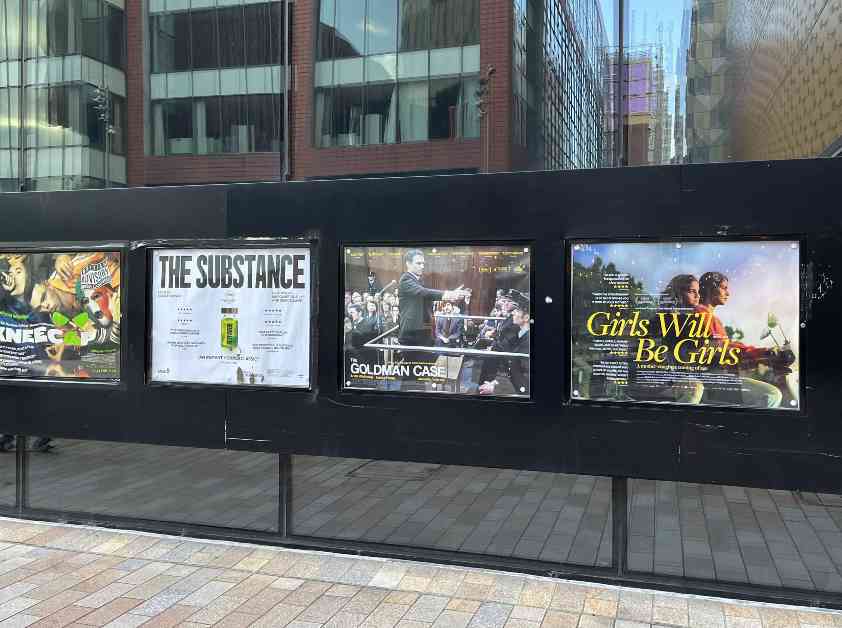**Unveiling France’s Dark Political Past Through the Goldman Case**
The Goldman Case, a riveting courtroom drama that delves into the life of Jewish revolutionary Pierre Goldman, has captivated audiences in France since its release in 2023. Beyond its portrayal of Goldman’s intense personality and gripping trial, the film raises important questions about French society and its historical biases.
In the semi-biographical film, Pierre Goldman, born to Polish parents, vehemently denies accusations of murdering two women and boldly confronts the court and French police, accusing them of racism. A fervent left-wing activist, Goldman is portrayed as willing to sacrifice his life for his principles, shedding light on his controversial political history, upbringing, family dynamics, and mental health.
Goldman adamantly proclaims his innocence, stating, “I am innocent because I am innocent,” while expressing anger towards the prosecution for painting him as a stereotypical murderer rather than focusing on the facts of the case. This portrayal of injustice and bias within the legal system resonates with broader societal issues prevalent in post-war France.
The film skillfully addresses the issue of post-war anti-Semitism in France, shedding light on the systemic and personal biases faced by Jewish, Black, and Arabic individuals. Actor Worthalter’s portrayal of Goldman, coupled with the film’s compelling subject matter, transforms the courtroom into a battleground of political ideologies, engaging viewers in a wider discussion while maintaining a focus on Goldman’s personal narrative.
Goldman and his leftist supporters breathe life into the courtroom, turning it into a spectacle of impassioned declarations that punctuate the film’s soundtrack-free ambiance. Amidst cries of “Goldman, murderer!” and chants of “Goldman, innocent!”, the tension between opposing viewpoints intensifies, drawing viewers into the ideological clash at the heart of the case.
As the film unfolds, the audience is kept on the edge of their seats, eagerly awaiting the jury’s verdict on Goldman’s case and the profound questions it raises about French society. The Goldman Case transcends mere entertainment, serving as a thought-provoking exploration of justice, prejudice, and political turmoil in a country grappling with its dark past.
**Challenging the Status Quo: The Legacy of Pierre Goldman**
Pierre Goldman’s story serves as a stark reminder of the complexities and injustices entrenched within France’s political and social fabric. His unwavering commitment to his beliefs, despite facing adversity and discrimination, highlights the resilience of individuals who dare to challenge the status quo.
Through Goldman’s trial, the film shines a spotlight on the enduring legacy of historical biases and prejudices that continue to shape perceptions and treatment of marginalized communities in France. By amplifying Goldman’s voice and experiences, the film invites audiences to confront uncomfortable truths about societal inequality and systemic discrimination.
Goldman’s character embodies a sense of defiance against a system that seeks to silence dissent and uphold oppressive norms. His unwavering resolve to proclaim his innocence, despite overwhelming odds stacked against him, serves as a testament to the power of individual agency in the face of injustice.
As viewers immerse themselves in Goldman’s tumultuous journey, they are compelled to reflect on their own roles in challenging injustice and advocating for a more equitable society. The Goldman Case transcends its cinematic portrayal to spark conversations about accountability, empathy, and the pursuit of truth in a world rife with misinformation and prejudice.
**A Cinematic Triumph: The Impact of The Goldman Case**
The Goldman Case stands as a testament to the power of storytelling in shedding light on forgotten histories and marginalized voices. By centering Pierre Goldman’s narrative within a broader socio-political context, the film invites audiences to grapple with uncomfortable truths and confront the complexities of justice, identity, and power dynamics.
The film’s portrayal of Goldman’s trial as a microcosm of societal tensions and historical injustices underscores the enduring relevance of his story in contemporary France. Through compelling performances and nuanced storytelling, The Goldman Case challenges viewers to interrogate their own biases and assumptions, prompting a deeper engagement with the complexities of the human experience.
As audiences flock to theaters to witness the riveting drama unfold on screen, they are not merely spectators but active participants in a larger dialogue about the legacies of oppression and resistance. The Goldman Case transcends its cinematic boundaries to become a catalyst for change, inspiring viewers to reexamine their own roles in shaping a more just and inclusive society.
In conclusion, The Goldman Case is more than a courtroom drama—it is a powerful reflection of France’s dark political past and a poignant reminder of the struggles faced by marginalized communities in their quest for justice and equality. Through its gripping narrative and compelling performances, the film invites audiences to confront uncomfortable truths, challenge prevailing narratives, and advocate for a more just and equitable society.

